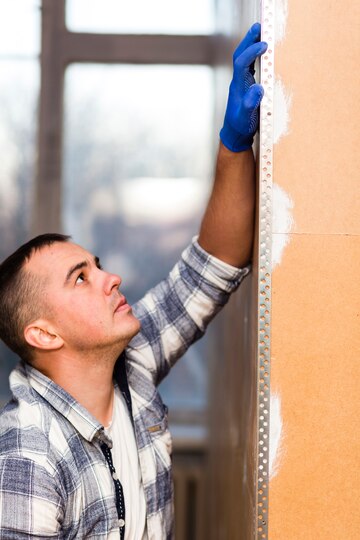In today’s bustling world, where the clamor of city life often intrudes upon our personal space, the quest for a peaceful and private home environment has become more important than ever. Soundproof insulation offers a highly effective solution to enhance your home's privacy by controlling and reducing noise pollution. Whether you live in a noisy urban area or simply wish to create a serene retreat within your home, understanding how sound proof insulation works can help you achieve the quiet and tranquility you desire.
Understanding Soundproof Insulation
Soundproof insulation is designed to minimize the transmission of sound between rooms or from the outside environment into your home. Unlike traditional insulation, which primarily focuses on thermal efficiency, soundproof insulation is specifically engineered to absorb, block, or reduce noise. This is particularly valuable in modern homes where noise can come from various sources such as traffic, neighbors, or even within the household itself.
The effectiveness of soundproof insulation is measured in terms of its Sound Transmission Class (STC) rating, which indicates how well a material can block sound. Higher STC ratings mean better sound isolation. Various materials and techniques can be employed to achieve effective soundproofing, each offering different benefits depending on your specific needs and the construction of your home.
Types of Soundproof Insulation
Several types of soundproof insulation can be used to enhance your home’s privacy. These include:
- Fiberglass Batts: Commonly used in residential construction, fiberglass batts are made from fine glass fibers that trap air, reducing sound transmission. They are effective in walls, ceilings, and floors and are relatively easy to install.
- Mineral Wool: Also known as rock wool, this insulation is denser and more effective at soundproofing compared to fiberglass. It can absorb sound and reduce noise transmission, making it ideal for areas where high sound insulation is required.
- Foam Panels: Acoustic foam panels are designed to absorb sound waves and reduce echo. They are often used in home studios or media rooms but can also be applied in other areas of the home to enhance soundproofing.
- Mass Loaded Vinyl (MLV): This dense material can be added to walls, floors, and ceilings to block sound. MLV works by adding mass to a structure, which helps in reducing sound transmission through walls and ceilings.
- Resilient Channels: These are metal channels that can be installed between drywall and the studs of your wall. They help to decouple the drywall from the structure, reducing the amount of sound that travels through the wall.
Benefits of Soundproof Insulation
The advantages of soundproof insulation go beyond merely reducing noise. Here’s how it can enhance your home's privacy and overall living experience:
- Improved Privacy: Soundproof insulation prevents noise from traveling between rooms, ensuring that conversations and activities remain private. This is particularly useful in multi-generational households or shared living spaces where privacy is a concern.
- Reduced Noise Pollution: In urban areas, external noise from traffic, construction, or other sources can be disruptive. Soundproof insulation helps to keep these noises outside, creating a more peaceful indoor environment.
- Enhanced Comfort: By reducing noise, soundproof insulation contributes to a more comfortable living environment. It can help in creating quiet spaces for relaxation, work, or sleep, leading to improved overall well-being.
- Increased Property Value: Homes with soundproof insulation can have higher market value. Potential buyers often appreciate the added benefit of reduced noise and increased privacy, making it a desirable feature in the real estate market.
- Energy Efficiency: Many soundproof insulation materials also offer thermal insulation benefits. This means that, in addition to controlling noise, they can help in maintaining consistent indoor temperatures and potentially reduce energy bills.
Installation Considerations
When planning to install soundproof insulation, several factors should be considered to ensure optimal results:
- Assessment of Needs: Determine which areas of your home require soundproofing. This could include walls, ceilings, floors, or specific rooms like home offices or media rooms.
- Material Choice: Select the appropriate type of soundproof insulation based on your needs and budget. Each material has its own advantages and installation requirements.
- Professional Installation: While some soundproofing materials can be installed by DIY enthusiasts, others may require professional installation to ensure effectiveness. Consulting with a contractor or soundproofing specialist can help in making the right choices and achieving the best results.
- Integration with Existing Structures: Consider how the soundproof insulation will integrate with your home’s existing structures. For example, adding insulation to walls may require removing drywall and making adjustments to electrical outlets and fixtures.
- Budget: Soundproof insulation can vary in cost depending on the material and the extent of installation required. It’s essential to plan and budget accordingly to achieve the desired level of soundproofing within your means.
Maintenance and Upkeep
Once installed, soundproof insulation requires minimal maintenance. However, it’s essential to monitor the effectiveness of the insulation over time. Ensure that there are no gaps or damage that could compromise its performance. Regular checks can help in maintaining the integrity of the soundproofing and ensure continued privacy and comfort.
Conclusion
Soundproof insulation is a valuable addition to any home seeking to enhance privacy and reduce noise pollution. By understanding the different types of soundproof insulation and their benefits, you can make informed decisions about improving your home’s acoustic environment. Whether you are dealing with external noise or simply wish to create quieter spaces within your home, investing in soundproof insulation can lead to a more serene and enjoyable living experience.





Comments